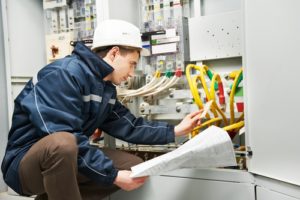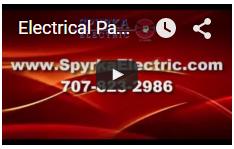Electrical Inspection is a very important process because most building structures across the country have electrical systems and components that tend to deteriorate over time. Due to this authorities have mandated that all electrical systems and components installed within commercial and residential buildings be tested and inspected from time to time in order to determine if they are up to standard and to ensure general safety within homes and businesses.
Electrical Inspection For A Safe Environment
 When safety checks such as these are conducted within residential or commercial structures they are referred to as ‘periodic inspection and testing’. This testing and inspection functions to reveal if any electrical circuits or equipment are overloaded and to investigate systems for any flawed electrical work.
When safety checks such as these are conducted within residential or commercial structures they are referred to as ‘periodic inspection and testing’. This testing and inspection functions to reveal if any electrical circuits or equipment are overloaded and to investigate systems for any flawed electrical work.
This inspection and testing also serves to search for any potential fire hazards or risks of electric shock which are among the number one causes of home fires and electrical injuries across the country.
As it relates to testing this is mainly carried out on wiring and fixed electrical equipment just to ensure that they are not damaged or exposed and are operating efficiently within electrical systems. .
Some people may often wonder what the appropriate timespan between periodic electrical inspections should be. If so it is suggested that persons follow the standard procedures in accordance to the Electrical Inspection and Safety Testing Guidelines where electrical systems and components should be inspected and tested every:
-
10 years for an owner-occupied home.
-
5 years for a rented home.
-
3 years for a mobile homes.
-
1 year for a swimming pool.
Further instances that require periodic inspection of electrical systems include:
-
When a property is being prepared for letting.
-
Before selling a property or buying a previously-occupied property.
Any form of electrical work is seen as a serious business and should not be taken lightly. Since this is the case only trained certified electricians should be retained to handle such tasks including periodic inspection and testing.
These professionals are knowledgeable, efficient, and operate within required codes and regulations taking into account all the relevant circumstances within investigations .For example the adequacy of earthing and bonding the suitability of the switchgear and control gear and the serviceability of switches, sockets and lighting fixtures.
To most people this may seem like a needless expense and inconvenience to have these inspections and tests conducted however these serve to ensure that homes and business have electrical systems that provide safe, reliable, electricity to all while keeping up with legal standards and safety guidelines. Contact us for more information.

